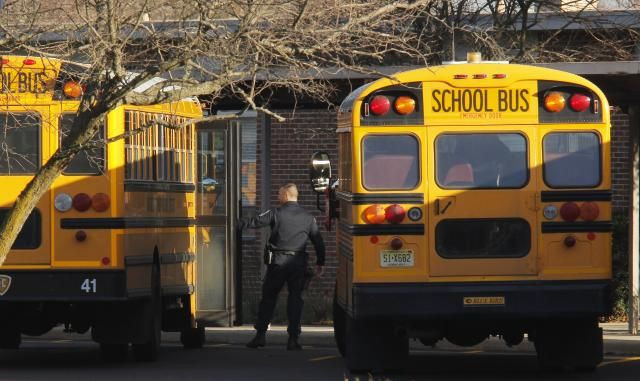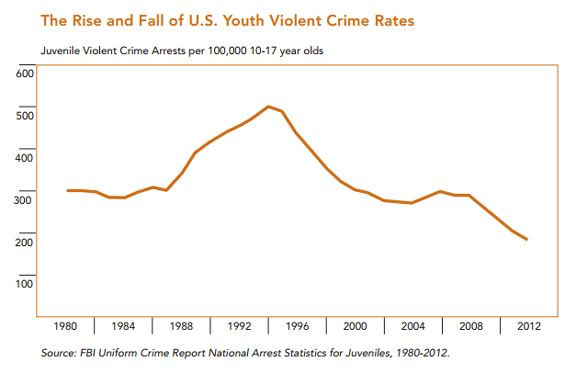Zero-Tolerance Policies Don’t Make Schools Safer, Says Vera Institute Report

It turns out there’s not much to love about tough love.
The zero-tolerance polices that American public schools established some 25 years ago have not made schools safer or more orderly, and in fact may be having the opposite effect, according to a new report by the Vera Institute of Justice.
The report, released last month and produced by the institute’s Center on Youth Justice, evaluates empirical research from hard-line school policies that mandate suspension or expulsion for students who engage in misconduct. Such policies gained significant momentum throughout the 1990s and 2000s, some of which, the researchers note, could be an overreaction to high-profile school-based tragedies like the Columbine massacre in 1999.
Despite widespread fear of school-based violence among parents and school officials, the violent-crime rate among youths has been dropping steadily since 1994, according to figures from the FBI. At the same time, out-of-school suspensions and expulsions have increased across the country, significantly so in some areas. Between 1973 and 2009, the Vera Institute reports, the number of secondary-school students suspended or expelled over the course of a school year jumped almost 40 percent.

And such punishments are not being doled out evenly. Boys are twice as likely as girls to receive out-of-school suspensions, while black students are suspended nearly four times more often than white students, according to a Texas A&M study cited in the Vera report. “There is abundant evidence that zero-tolerance policies disproportionately affect youths of color,” the researchers wrote.
Students with disabilities are also disproportionately affected, with such students nearly three times more likely to receive out-of-school suspensions. In the Texas study, the institute notes, students with learning disabilities and emotional disturbances were most likely to receive suspensions.
The institute is quick to point out that discipline does play an important role in public schools, both by minimizing disruption and preventing dangerous events from occurring. But the wisdom that simply kicking students out is the best way to achieve these results is, the researchers say, flawed at best. “The theory underlying zero-tolerance policies is that schools benefit in both ways when problem students are removed from the school setting,” the researchers wrote. “However, there is no research actually demonstrating this effect. No studies show that an increase in out-of-school suspension and expulsion reduces disruption in the classroom.”
Additionally, zero-tolerance policies, by disrupting a student’s academic progress, can have serious long-term negative effects, both for students and society as a whole. One study showed that students with a prior suspension were 68 percent more likely to drop out of school. Those dropouts, in turn, earn less money than their graduated counterparts and are more likely to end up as part of the juvenile justice system and even in prison, an effect dubbed the “school-to-prison pipeline. However, Vera admitted in its report that it’s not clear if simply being exposed to hash discipline in school increases a person’s likelihood of serving time in prison. “[When we] attempted to study this issue, our findings were inconclusive,” the researchers wrote.
Nevertheless, the institute is not alone in reevaluating these tough-love policies that have defined school discipline for a generation of American students. Last month, the New York Times reported that many districts around the country -- faced with mounting evidence that zero-tolerance policies are leading to arrest records -- are now “rethinking their approach to minor offenses.”
The Vera Institute report, “A Generation Later: What We’ve Learned About Zero Tolerance in Schools,” was authored by researchers Jacob Kang-Brown, Jennifer Trone, Jennifer Fratello and Tarika Daftary-Kapur.
Read the full report here.
Got a news tip? Email me. Follow me on Twitter @christopherzara
© Copyright IBTimes 2024. All rights reserved.












